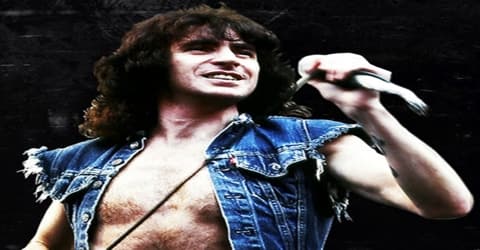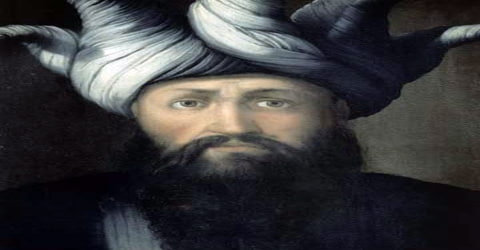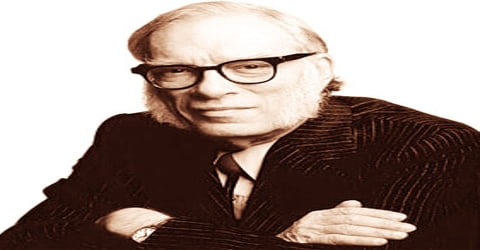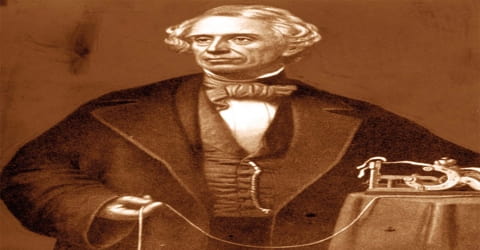Biography of Bon Scott
Bon Scott – Australian singer, songwriter, and instrumentalist.
Name: Ronald Belford “Bon” Scott
Date of Birth: 9 July 1946
Place of Birth: Forfar, Scotland, UK
Date of Death: 19 February 1980 (aged 33)
Place of Death: East Dulwich, London, England, UK
Occupation: Musician, Singer, Songwriter
Father: Charles
Mother: Isa
Spouse/Ex: Irene Thornton (m. 1972–1978)
Early Life
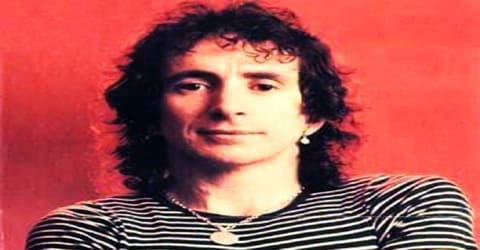
Australian singer, songwriter, and instrumentalist, best known for being the lead vocalist and lyricist of the Australian hard rock band AC/DC, Bon Scott was born on 9 July 1946 at Fyfe Jamieson Maternity Hospital in Forfar, Scotland, the son of Charles Belford “Chick” Scott (d. 1999) and Isabelle Cunningham “Isa” Mitchell (1917–2011). Scott moved to Australia with his family in 1952 at the age of six, living in Melbourne for four years before settling in Fremantle, Western Australia. Scott formed his first band, The Spektors, in 1964 and became the band’s drummer and occasional lead vocalist. He performed in several other bands including The Valentines and Fraternity before replacing Dave Evans as the lead singer of AC/DC in 1974.
Scott loved music from a young age and was a highly creative and rebellious youngster. As is common with unruly teenagers, he often found himself in trouble with the authorities. He dropped out of school at 15 and had brushes with the law which had him sent to the Riverbank Juvenile Institution. Labeled as a social misfit, he was denied a position in the Australian army. He worked at several odd jobs to support himself after leaving school. He started playing drums during his adolescent years and formed his first band The Spektors, in 1964. He played for some other bands as well before joining AC/DC as their lead singer. The band’s popularity reached new heights after Scott joined them; the band’s debut album ‘High Voltage’ was a big hit. Within a year the band brought out the single, ‘It’s a Long Way to the Top (If You Wanna Rock ‘n’ Roll)’ which soon became known as the quintessential rock anthem.
AC/DC’s popularity grew throughout the 1970s, initially in Australia, and then internationally. Their 1979 album Highway to Hell reached the top 20 in the United States, and the band seemed on the verge of a commercial breakthrough. However, on 19 February 1980, Scott died after a night out in London. AC/DC briefly considered disbanding, but the group recruited vocalist Brian Johnson of the British glam rock band Geordie. AC/DC’s subsequent album, Back in Black, was released only five months later and was a tribute to Scott. It went on to become the third best-selling album in history.
However, the promising young musician soon got caught up in the shackles of alcoholism which put an abrupt full stop on his career by snuffing out his life.
Childhood, Family and Educational Life
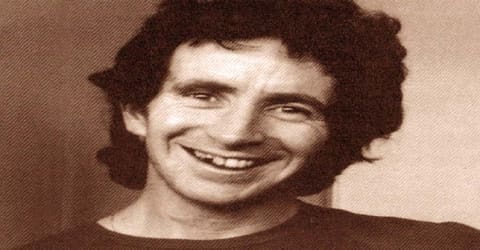
Bon Scott, by the name Ronald Belford “Bon” Scott, born on 9 July 1946 at Fyfe Jamieson Maternity Hospital in Forfar, Scotland, the son of Charles Belford “Chick” Scott (d. 1999) and Isabelle Cunningham “Isa” Mitchell (1917–2011). He was born in Scotland through the family later migrated to Australia.
Scott attended North Fremantle Primary School and went to the John Curtin College of Arts. As a child he began performing in his father’s pipe band, and following the family’s relocation to Australia in 1952 he quit school at age 15, later playing in a local rock outfit called the Spektors.
Scott had a record as a troublemaker he spent time in Fremantle Prison’s assessment center and was committed to the Riverbank Juvenile Institution for nine months on charges of theft and sexual misconduct.
Personal Life
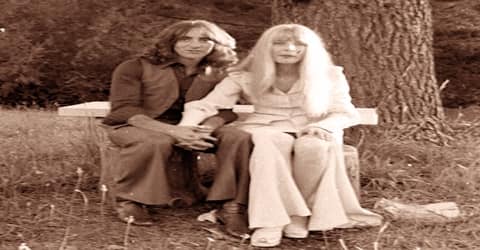
On 24 January 1972, Bon Scott married Irene Thornton and divorced in 1978.
Scott was an alcoholic and had drunk too much in a London club on 19 February 1980. He was so drunk that he passed out in the car where he was left to spend the night by a friend. The next day he was found lifeless and taken to the hospital where he was pronounced brought dead. The official cause of his death was listed as acute alcohol poisoning.
Career and Works
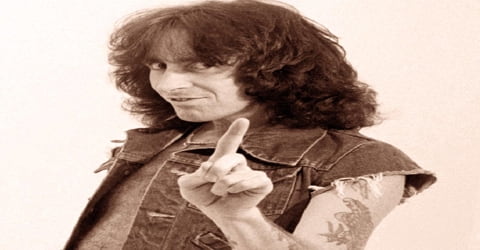
Scott’s vocals were inspired by his idol, Little Richard. After working as a postman, bartender, and truck packer, Scott started his first band, The Spektors, in 1966 as a drummer and occasional lead singer. One year later the Spektors merged with another local band, the Winstons, and formed The Valentines, in which Scott was a co-lead singer with Vince Lovegrove. The Valentines recorded several songs written by George Young of The Easybeats. “Every Day I Have to Cry” (a song originally written and sung by Arthur Alexander) made the local record chart. In 1970, after gaining a place on the National Top 30 with their single “Juliette”, the Valentines disbanded due to artistic differences after a much-publicized drug scandal.
By 1967, Scott had joined the Melbourne-based group the Valentines, making his recorded debut with the single “Every day I Have to Cry”; the band soon emerged as one of the most popular on the Aussie circuit, in mid-1969 issuing an EP, My Old Man’s a Groovy Old Man. A drug bust destroyed the Valentines’ public image, however, and after cracking the national Top 30 with their 1970 single “Juliette,” the band dissolved; Scott soon joined the Sydney blues-rock unit Fraternity, issuing the LP Livestock in 1971. During this time they played support slots for Status Quo and Geordie, whose frontman Brian Johnson would eventually succeed Scott as the lead singer of AC/DC after his death.
In 1973, just after returning to Australia from the tour of the UK, Fraternity went on hiatus. Scott took a day job at the Wallaroo fertiliser plant and began singing with the Mount Lofty Rangers, a loose collective of musicians helmed by Peter Head (né Beagley) from Headband, who explained, “Headband and Fraternity were in the same management stable and we both split about the same time so the logical thing was to take members from both bands and create a new one … the purpose of the band was for songwriters to relate to each other and experiment with songs, so it was a hotbed of creativity”. Other ex-Fraternity members also played with the band as did Glenn Shorrock pre Little River Band. During this time, Head also helped Scott with his original compositions.
AC/DC’s popularity grew throughout the 1970s, initially in Australia, and then internationally. Their 1979 album Highway to Hell reached the top twenty in the United States, and the band seemed on the verge of a commercial breakthrough.
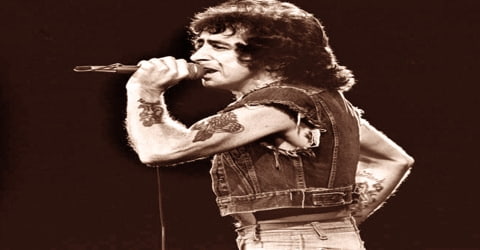
The band went on a tour of the U.K. in 1973 and played there under the name ‘Fang’. However, the band went on a hiatus after returning to Australia. Scott got involved in a serious motorbike accident in 1974 which left him in a coma for three days. His friend Vince Lovegrove helped him by giving him odd jobs during his recovery. He also introduced the struggling musician to the band AC/DC who were looking for a new lead singer. The hard rock band AC/DC was formed by the Young brothers, Malcolm and Angus. Scott joined the band in September 1974 and changed the fortunes of the band for the better.
With the Young brothers as lead and rhythm guitarists, session drummer Tony Currenti (see AC/DC line-ups) and George Young as a temporary bassist, AC/DC released High Voltage, their first LP in Australia in February 1975. Within a few months Currenti was replaced by Phil Rudd and Mark Evans was hired as a permanent bassist, and AC/DC began recording their second album T.N.T., which was released in Australia in December 1975. The first AC/DC album to gain international distribution however was a compilation of tracks from the first two albums, also entitled High Voltage, which was released in May 1976.
Within a month of his joining, the band released its album ‘High Voltage’ in October 1974 in Australia only. Scott had contributed lyrics to the songs featured in the album. The band released the single ‘It’s a Long Way to the Top (If You Wanna Rock ‘n’ Roll)’, which became their signature song.
The band went on an international tour of Europe in 1976 which was called the ‘Lock Up Your Daughters Summer Tour’. The band grew in popularity and supported leading rock bands such as Black Sabbath, Aerosmith, and Kiss. The band’s album ‘Dirty Deeds Done Dirt Cheap’ was out in 1976. It was originally released in Australia and later an international version was also released. The album was an international super hit.
In the following years, AC/DC gained further success with their albums Let There Be Rock and Powerage. The 1978 release of Powerage marked the debut of bassist Cliff Williams (who had replaced Mark Evans), and with its harder riffs, followed the blueprint set by Let There Be Rock. Only one single was released from Powerage “Rock ‘n’ Roll Damnation” which gave AC/DC their highest chart position at the time, reaching #24. An appearance at the Apollo Theatre in Glasgow during the Powerage tour was recorded and released as If You Want Blood You’ve Got It.
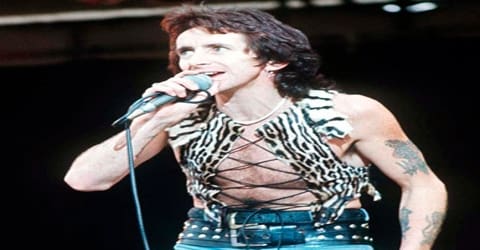
In 1977, the album ‘Let There Be Rock’ was released. It featured the tracks ‘Dog Eat Dog’, ‘Let There Be Rock’, and ‘Bad Boy Boogie’. The very next year, the album ‘Powerage’ was released.
The band’s sixth album, Highway To Hell, was produced by Robert “Mutt” Lange and was released in 1979. It became AC/DC’s first LP to break the US top 100, eventually reaching #17, and it propelled AC/DC into the top ranks of hard rock acts.
The late 1970s was a very busy time for the band as they released albums in quick succession. ‘Highway to Hell’, released in 1979 went on to become one of the most popular albums. It was the last one to feature Scott who died the next year.
On 15 February 1980, Scott attended a session where Malcolm and Angus Young were working on the beginnings of two songs that would later be recorded on the Back in Black album; “Have a Drink On Me” and “Let Me Put My Love Into You” with Scott accompanying on drums rather than singing or writing lyrics. However, on 19 February 1980, Scott spent a night of partying in London.
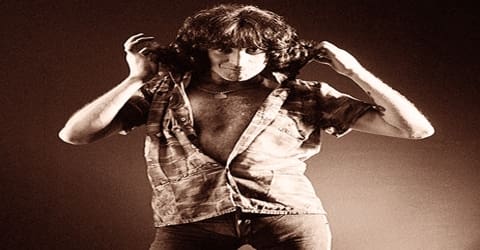
In the aftermath of Scott’s death, AC/DC considered disbanding but decided that he would have wanted them to carry on. They, therefore, recruited vocalist Brian Johnson of the British glam rock band Geordie. AC/DC’s next album, Back in Black, was released five months later as a tribute to Bon Scott. It has sold an estimated 42 million copies, making it second only to Michael Jackson’s Thriller as the best-selling album of all-time.
Awards and Honor
In 2003, Bon Scott was posthumously inducted into the Rock and Roll Hall of Fame as a member of AC/DC with his nephews present to accept the honor in his place.
Scott is the subject of five books: Clinton Walker’s Highway to Hell (1994), his ex-wife Irene Thornton’s My Bon Scott (2014), the variously-authored Live Wire (2015), J.P. Quinton’s “historical fiction” Bad Boy Boogie (2016), and Jesse Fink’s Bon: The Last Highway (2017). Fink’s book claims that Scott died of a heroin overdose, while Walker backs the coroner’s finding of alcohol poisoning. The controversial point that he and Walker both agree on is that a lot of Bon’s lyrics were co-opted, uncredited, into Back in Black.
Death and Legacy
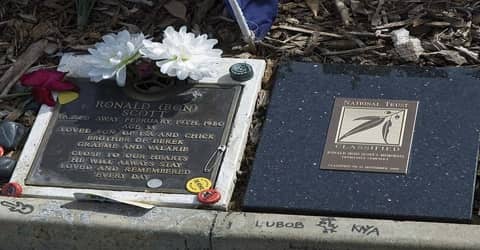
On 19 February 1980, Bon Scott spent a night of partying in London. Aged only 33 at the time, he passed out after drinking heavily in a London club. Scott was left to sleep in a Renault 5 owned by a friend of Scott’s, Alistair Kinnear, at 67 Overhill Road in East Dulwich. Later that day, Kinnear found Scott lifeless and alerted the authorities. Scott was taken to King’s College Hospital in Camberwell, where he was pronounced dead on arrival.
The chronology of events on 19 February and when exactly Scott was found dead has been challenged by Jesse Fink’s 2017 book Bon: The Last Highway, which quotes UFO guitarist Paul Chapman as having been informed early that morning by Scott’s friend Joe Fury that Scott was dead. Kinnear said he found Scott in the evening. Chapman claims Scott and Fury were with him the previous evening of 18 February and Scott left his apartment to buy heroin, never to return.
As part of the funeral arrangements, Scott’s body was embalmed by Desmond Henley; it was later cremated and Scott’s ashes were interred by his family at Fremantle Cemetery in Fremantle. His gravesite has become a cultural landmark; more than 28 years after Scott’s death, the National Trust of Australia declared his grave important enough to be included on the list of classified heritage places. It is reportedly the most visited grave in Australia.
‘Dirty Deeds Done Dirt Cheap’ was one of the most popular albums on which Scott had collaborated with the Young brothers in writing the lyrics. The album was accredited multi-platinum with over six million copies being sold the world over. The last album to feature Scott, ‘Highway to Hell’ was a super hit with the fans. With a sales figure of over seven million copies, the album was listed among the list of ‘500 greatest albums of all time’ by ‘Rolling Stone.
A bronze statue of Scott was unveiled at Fremantle Fishing Boat Harbour in Western Australia on 24 February 2008. The statue portrays Scott atop a Marshall amplifier.
Information Source:
